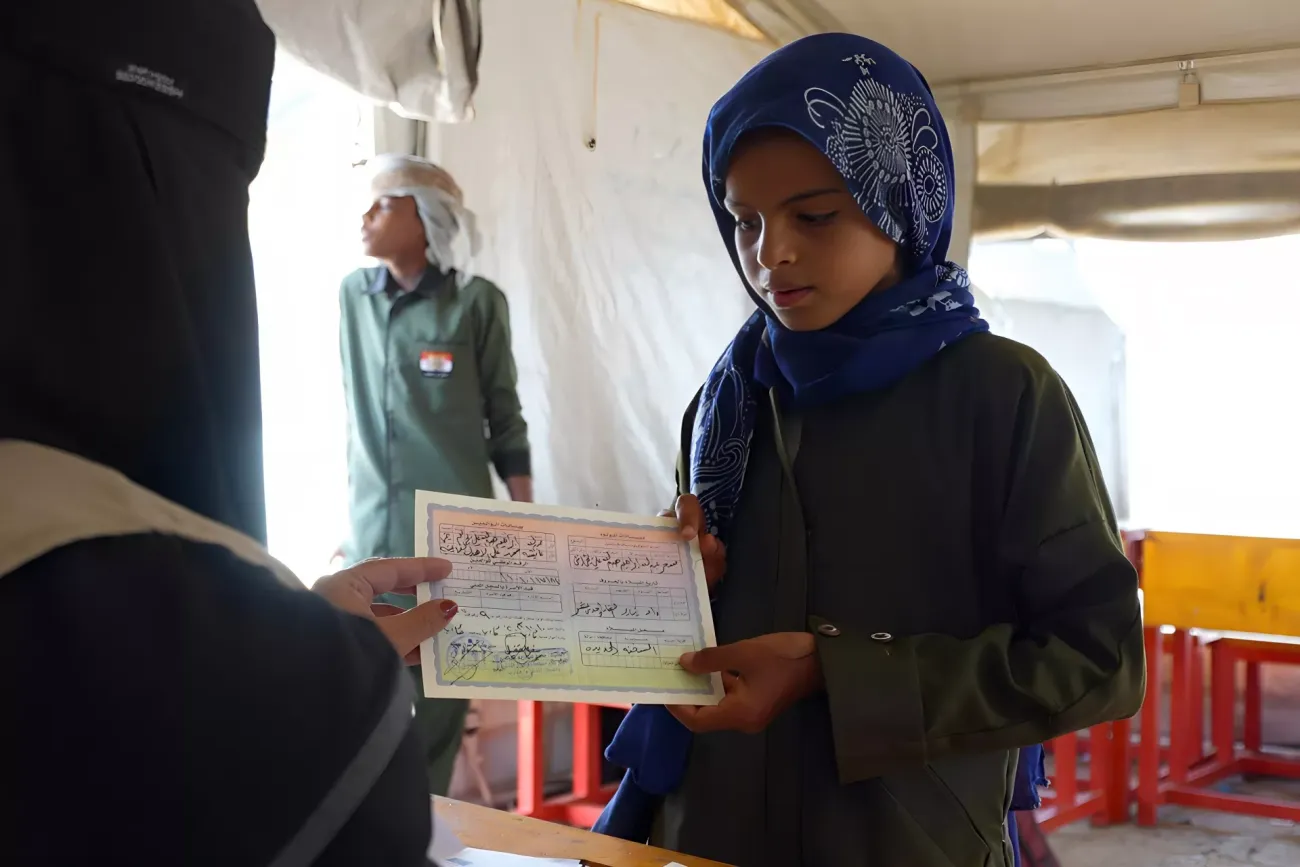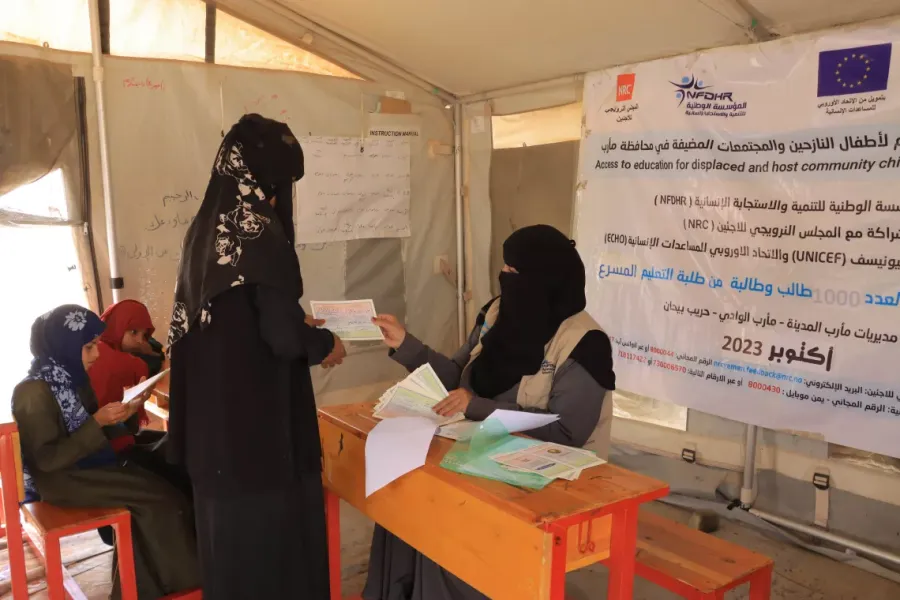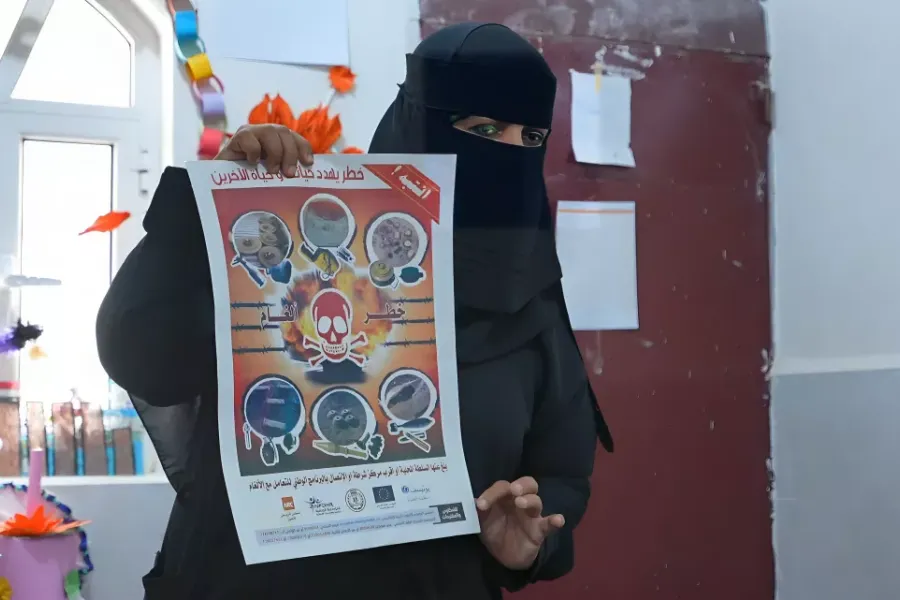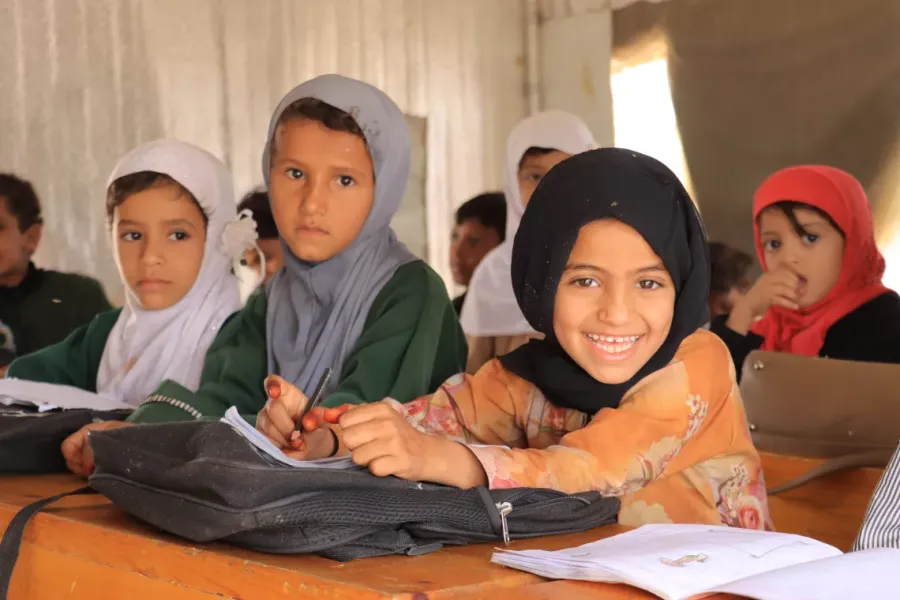UNICEF Yemen: Empowering Yemen's Displaced: Securing Birth Certificates to Access Education

UNICEF and partners help families from internally displaced camps in Yemen obtain birth certificates and return their children to schools.
According to the latest data from UNICEF, 4.5 million people in Yemen are now internally displaced. Those are families who had to flee their homes due to the long-lasting military conflict in the country.
Today, those people mainly live in internally displaced camps, located in remote areas scattered around Yemen.
One of the main challenges those people face is the lack of valid documents, especially children`s birth certificates, making it extremely hard to keep track of those who need support, distribute supplies, and build functioning social systems when the country is already weakened tremendously by the war.
“My children don’t have any birth certificates because our lives were ruined by war and displacement,” says Nora Abdullah Mohsen Rabwan, a mother of four, who now lives in one of the displacement camps in Marib. “We lost the documents when we had to flee and couldn’t get birth certificates for children because we now live far from the Department of Civil Status,” she explains.
“It is true that many parents don’t get birth certificates for their children because they live in remote areas and traveling to places where such documents can be issued is too expensive and even dangerous nowadays,” says Abeer Naji Mohammed, supervisor of the accelerated education centres, which were established, among other facilities, to build temporary classrooms in displaced people’s camps. “Many of them also cannot afford the fees for those documents, and that is why it is a great relief that UNICEF covers those fees and helps families get those important documents.”
Above everything else, a birth certificate is an essential document that allows one to enroll a child in school. According to the 2023 Yemen Multiple Indicator Cluster Survey, one out of every four children of basic school age is out of school today, a difficult situation which makes Yemeni children vulnerable to exploitation, crime, human trafficking, and other hostile scenarios.

“In the displacement camps, we sometimes see children who have been out of school for over four years,” says Mushhira Saleh Al-Hejazi, a supervisor in the Accelerated Learning Programme supported by UNICEF and funded by the European Union at Al-Nasr School. “Many of those children were deprived of the opportunity to attend school precisely because they had no birth certificates.”
Mushira and her colleague Abeer added that the accelerated education centres target the most vulnerable children, helping them return to classrooms even after several years of being out of school.
“In Al-Sumaia Camp and Al-Nasr School, the programme has targeted about 250 children. They all now have birth certificates,” says Mushhira. “Before the programme, half of those children were out of school. Now we managed to involve 420 children in the camp in three learning phases. It is a great achievement, and we are very grateful to all the people affiliated with the programme for making it possible.”
“Our children, who had to leave school due to displacement, got remedial education and caught up with their studies,” says Nora, who now lives with her family in one of the displacement camps. “With those birth certificates, we can now issue ID cards for our children, along with many other things,” she adds
A birth certificate is the first and probably one of the most important documents in a person’s life. It gives access to fundamental rights such as education and qualified healthcare, makes a child officially “visible.” This helps the authorities to provide support to children and parents and address challenges they face during the difficult time Yemen faces today.

Today UNICEF and partners help families from internally displaced camps in Yemen obtain birth certificates and return their children to schools. The accelerated education centers, do not just help children catch up with their education, but also provide Mine Risk Education and Psychological Support training sessions.
All these are ultimate lifesavers for the regions that suffer from the remnants of war and other brutal consequences of a long-lasting military conflict. Together they give the war-torn country hope for a bright, stable, and peaceful future, breathing life into once abandoned classrooms and desperate hearts.



